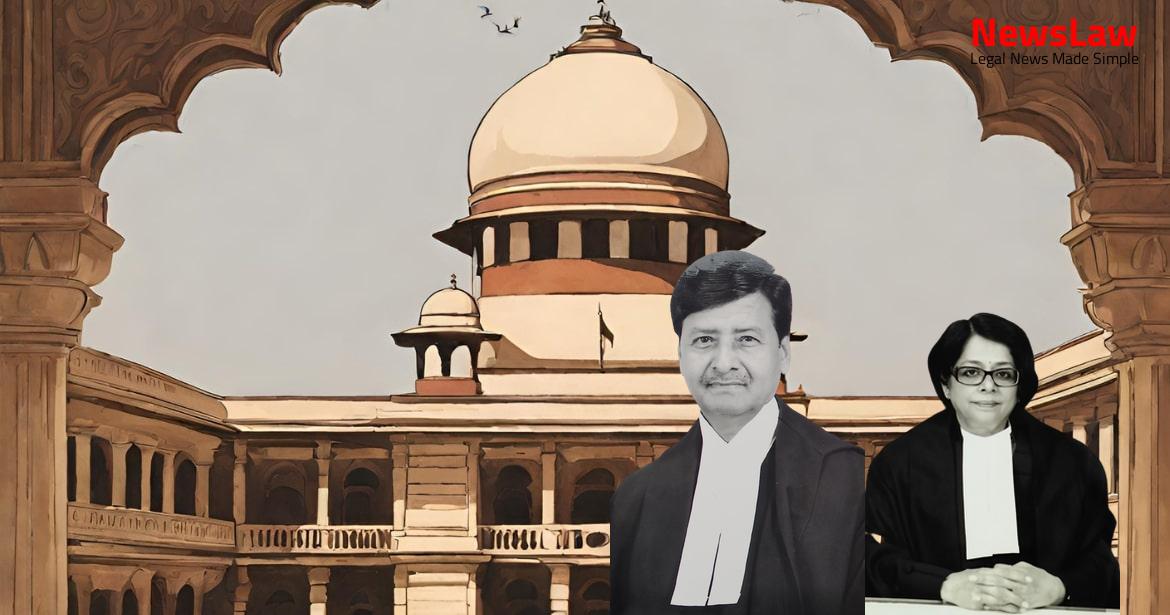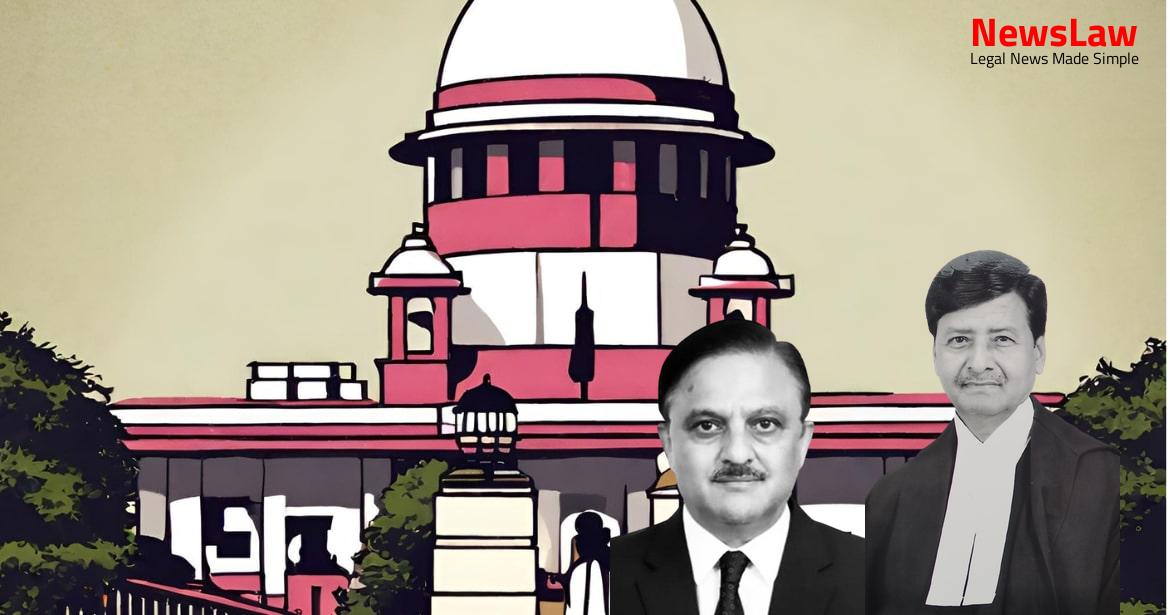In a recent court case, the definition of an Industrial Establishment was meticulously analyzed by the court. The focus was on determining whether the entity in question fell under the purview of Industrial Laws based on the specific criteria outlined. Delve into the legal intricacies of this case as the court dissected the nuances of defining an Industrial Establishment in the realm of legal frameworks.
Facts
- A dispute was referred to the Labour Court regarding the reinstatement of the respondent in the Rajghat Canal Project of the Irrigation Department.
- The respondent was initially appointed as a daily wage employee on the post of Helper in the Irrigation Department.
- The respondent’s employment was terminated on 1 December 1995 but was reinstated on 11 August 2004. However, it was terminated again on 2 July 2005.
- The Labour Court found Chapter VB of the Industrial Disputes Act, 1947 applicable to the case.
- State of Madhya Pradesh and three others appealed against the Judgment and Order dated 11 December 2019 by a Division Bench of High Court of Madhya Pradesh.
- The writ appeal was filed against the Judgment and Order dated 25 June 2018 by a learned Single Judge on a Writ Petition by the present appellants.
- The appellants did not comply with section 25N of the ID Act, leading to the respondent being entitled to reinstatement.
- The Labour Court refused to grant back wages to the respondent.
- The decision of the learned Single Judge in the Writ Petition was upheld in the Writ Petition filed by the present appellants, and further confirmed by the Division Bench in the impugned Judgment and Order dated 11 December 2019.
Also Read: Recovery of Misappropriated Temple Funds: Court’s Legal Analysis
Arguments
- The Deputy Advocate General of Madhya Pradesh argued that compliance with section 25F of the Industrial Disputes Act was made by the appellants.
- It was contended that since the Irrigation Department is not an Industrial Establishment, Chapter VB would not apply.
- The argument was made that even though the Irrigation Department has over a hundred workers, it does not qualify as a factory under the Factories Act as it does not engage in manufacturing processes.
- Therefore, it was concluded that section 25N of the ID Act, being part of Chapter VB, would not be applicable.
- The counsel for the respondent countered by stating that section 25F of the ID Act had not been complied with, indicating engagement in manufacturing processes as per the act.
- It was asserted that the Irrigation Department of the first appellant, being an Industrial Establishment, should have obtained permission under section 25N of the ID Act from the appropriate Government.
- The activities of pumping water and sewage were highlighted to show the involvement in industrial processes.
- Lastly, it was argued that the Irrigation Department of the first appellant does not fall under the definition of an Industrial Establishment as per Section 25L of the ID Act.
- Relying on a decision of the Court in the case of State of Maharashtra and Anr. v. Sarva Shramik Sangh, Sangli and Ors.
- Arguing that no interference is required in the current case.
- Submitting that three Courts have collectively found a failure to comply with Section 25 N by the appellants.
Also Read: Determining Seniority in Delayed Appointments: Legal Analysis
Analysis
- Chapter VB does not apply to the case as the Irrigation Department is not carrying on manufacturing processes.
- The crucial question of whether the Irrigation Department is a factory as per the Factories Act was not considered in the case.
- Functions like disaster management, flood control, and reservoir operations of the Irrigation Department do not classify it as an Industrial Establishment.
- The respondent’s argument based on sub-clause (ii) of clause (k) of section 2 regarding pumping water and sewage was not sufficient to prove manufacturing processes.
- The notice under section 25F of the ID Act was addressed to the respondent, indicating compliance with compensation regulations.
- Manufacturing process defined under clause (k) of section 2 of the Factories Act includes various activities such as making, altering, repairing, finishing, cleaning, generating power, etc.
- Factory is defined under clause (m) of section 2 of the Factories Act as premises where manufacturing process is carried out with the aid of power by ten or more workers, or without the aid of power by twenty or more workers.
- The question at hand is whether the Irrigation Department falls under the definition of an Industrial Establishment as per Section 25L.
- Industrial establishment includes a factory, mine, or plantation as defined in specific acts.
- The debate revolves around whether the Irrigation Department fits the criteria of an industrial establishment based on these definitions.
- The Irrigation Department of the first appellant is not engaged in manufacturing activity as per the Factories Act.
- The crucial question of whether the Irrigation Department qualifies as an Industrial Establishment under Section 25L was not addressed by the Labour Court, Single Judge, or Division Bench of the High Court.
Also Read: Legal Analysis in Assault and Homicide Case
Decision
- The appeal succeeded
- The impugned judgments and orders were set aside
- The termination of the respondent’s employment was deemed legal and valid
- The appeal was allowed with no order as to costs
Case Title: THE STATE OF MADHYA PRADESH Vs. SOMDUTT SHARMA (2021 INSC 576)
Case Number: C.A. No.-006093-006093 / 2021



